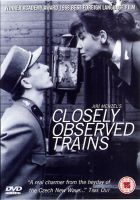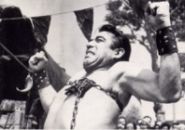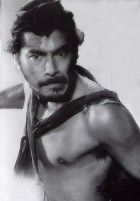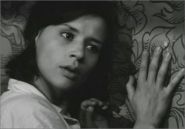Your Chosen Genres
[ Oscar (Best Foreign Language) ]
[ Classics ]
[ Recommended ]
Can be Combined with Other Genres. Click here to Combine Genres!
Currently Selected:
•
Oscar (Best Foreign Language)
•
Classics
•
Recommended
Certification15
Our Rating
The story of a director, devoid of inspiration and on the verge of a nervous breakdown, trying to satisfy the anticipation surrounding his next project. Surreal, serio-comic mildly autobiographical and widely acclaimed as one of the great films about movie-making. Fellini's masterpiece.
find out more...
CertificationU
Our Rating
Perhaps the most influential period in cinema history was the Italian neo-realism period of the late 40s and director Vittorio De Sica was one of the prime reasons for this important period of film-making. "The Bicycle Thieves" is a film about a poor man whose only means for a job is his bicycle, which gets stolen. The film follows him and his young boy throughout war-ravaged Rome in search of the stolen bike. The trip involves some of the most brilliant vignettes in film history; the church, th
find out more...
CertificationPG
Our Rating
CertificationPG
Our Rating
During the German Occupation a young trainee railway guard at a remote country station desperately tries to lose his virginity. He finally succeeds with the station master's wife. Satiric, anti-heroic, humorous and balanced tragi-comedy. Generally considered the finest Czech new wave film.
find out more...
CertificationPG
Our Rating
Life as a circus is the theme of Fellini's tragi-comic road movie. Gelsomina, a naive simpleton, is sold to strongman Zampano, whose brutish behaviour becomes increasingly evident as they tour through the desolation that is post-war Italy. Despite the pessimism of much of the story, Fellini has already moved far from his roots in neo-realism and symbols, metaphors and larger-than-life performances hold sway, and moments of bizarre if inconsequential charm abound. Sad, sentimental and simply stun
find out more...
CertificationU
Our Rating
CertificationPG
Our Rating
Winner of the Best Foreign Film Oscar back in 1957, this early Fellini drama also bagged a Best Actress award at Cannes for Giulietta Masina, and was the inspiration for the hit musical "Sweet Charity". Cabiria (Masina) is the archetypal tart with a heart, a street prostitute who never loses her smile or her faith in human nature, despite being rejected and ripped off by the various men in her life. Digitally remastered from a newly restored print which contains a seven-minute scene not seen sin
find out more...
Certification12
Our Rating
CertificationPG
Our Rating
An atmospheric medieval allegory for which Bergman won his first Oscar and International Critics Prize at Cannes. On her way to church, a 15-year-old peasant girl is raped and murdered by two goatherds. Later, in a bizarre twist of fate, the culprits ask for food and shelter at the house of the dead girl's parents. Discovering the truth, when the goatherds offer to sell them their dead daughter's bloodstained clothes, the parents exact a brutal revenge. The formal simplicity and overt symbolism,
find out more...
Certification15
Our Rating
The first part of Bergman's trilogy (followed by Winter Light) about God's silence. His deeply melancholic views on the human condition are reflected thru' this tale of four Swedes geographically isolated, in a summer home on a holiday island, and emotionally separated from each other in a society, rooted in Lutheran Protestanism, in which self-expression is taboo and feelings suppressed. As one of them descends into insanity the others can only gaze helplessly on. Much to be admired in Bergman'
find out more...











